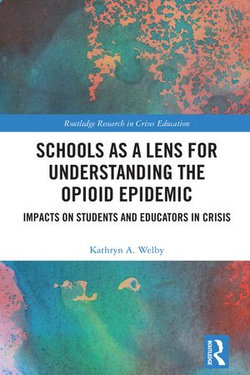This book investigates the profound and complex impact of the opioid epidemic on schools in the United States, focusing on diverse aspects such as its history, legislative responses, trends, and implications for students, educators, and schools.
Sharing research from multiple case studies in elementary schools located in Northeast opioid-crisis regions, the book explores the ripple effects of students' adverse childhood experiences, community and household opioid exposure, transiency, homelessness, attendance, as well as the profound struggles of educators dealing with secondary trauma. Shedding light on the untold stories of young children contending with the consequences of opioid exposure, it foregrounds these voices and stories through the unique perspectives of educators. Additionally, the book examines the developing landscape of initiatives to mitigate the crises' effects on students, emphasizing the need for comprehensive approaches. Finally, the book explores potential interventions and strategies to address the complex issues arising from the opioid epidemic in schools, advocating for a comprehensive, multi-tiered approach involving collaboration among various stakeholders.
Through a synthesis of historical context, multiple case studies, qualitative follow-up investigations, and analysis, this book provides a comprehensive understanding of the interconnected challenges posed by the overwhelming impact of the opioid epidemic on education in the United States. It will appeal to scholars, researchers, educational leaders, school administrators, teachers, and post-graduate students with interests in crises education, educational psychology, trauma studies, public health policy, sociology of education, and addiction and substance abuse.



Share This eBook: